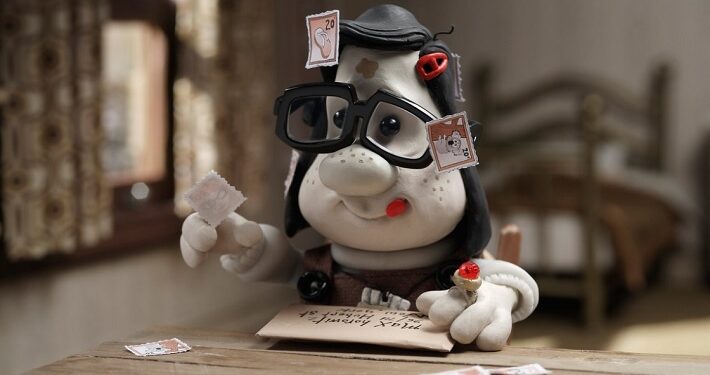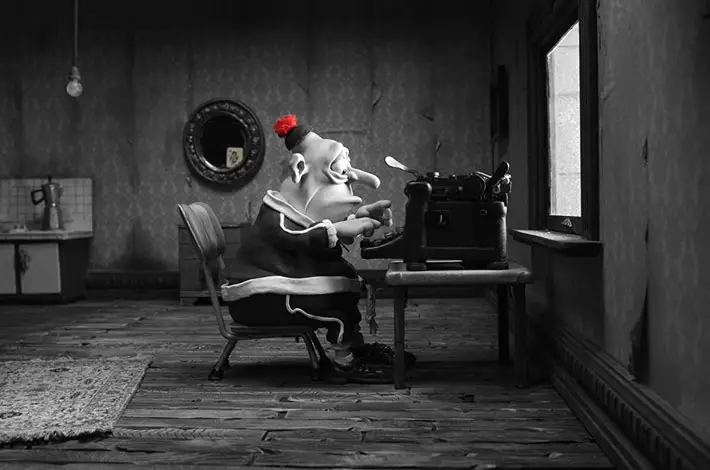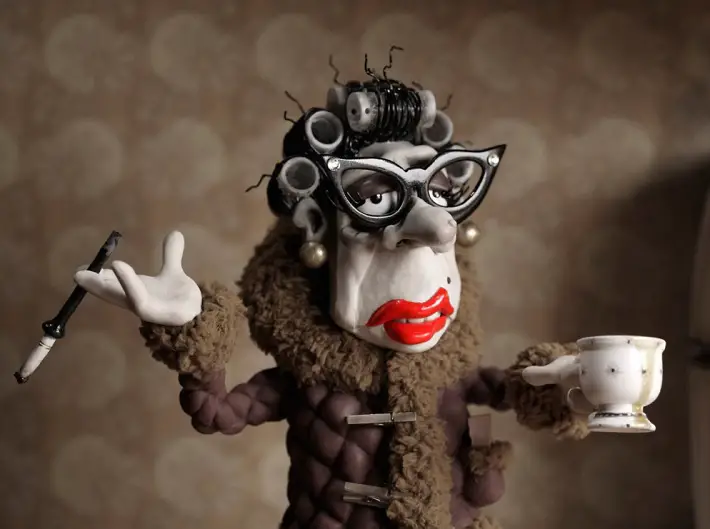Mary and Max (2009) – Film Review

Director: Adam Elliott
Voice Cast: Toni Collette, Philip Seymour Hoffman, Eric Bana
Certificate: PG
by Rosie Hargreaves
Mary and Max is essentially about two pen pals who write to each other throughout the years – between the seventies and eighties given the settings and puppets’ attire. Even the director himself, Adam Elliot, admitted that this isn’t necessarily an engaging synopsis for a film. What makes Mary and Max a truly special film, is how character driven it is; yes, the animated (but otherwise inanimate), three-dimensional stop motion, clay characters.
Young Mary lives in the suburbs of Australia, neglected by her parents, and bullied at school. She’s a lonely soul, looking for friendship through her homemade toy collection, her pet rooster and eventually, a stranger. She decides to write to Max Jerry Horowitz, a middle aged, overweight, New Yorker with severe Asperger’s syndrome: mostly because she is intrigued by his uber-American name in an overseas phonebook. I know this sounds like it’s getting into dodgy territory here, but hang tight.
Over the years, the two share anecdotes of their experiences, recipes, and a joint appreciation of their favourite TV programme: ‘The Noblets’. Their friendship isn’t always a smooth one, and times are often challenging for both Mary and Max, who both suffer the trials and tribulations of love, loneliness, mental health and low self-esteem. It doesn’t sound like much really happens here, and like it all might be a bit on the sad side, but the character’s intricacies, humility and honesty is enough to make up for the lack of pizzazz on the narrative front. And besides, without great characters (and a few themes all people will be able to relate to thrown in for good measure), there is no great story.
“Delicate handling”
Elliott describes the stop motion animation film as a “film for adults” rather than children and admits it’s “no Finding Nemo“. I’d have to agree with him on that one, although I will admit that Mary and Max is a great teaching tool for complex topics such as mental health and dysfunctional relationships for most ages. Yet despite this, and the beautifully quirky puppets that would appeal to children, the film is for us, the grown-ups.
It takes that grown-up eye to recognise Mary’s all brown world, and what it might represent for her: her self-consciousness about her brown birthmark, the dullness of seventies décor, the lack of childish wonderment due to her isolation. But even on a more literal front, watchers will recognise themselves or at least some of their own experiences, in the characters’ most basic actions and motivations. Whether it be a desire to change an apparent imperfection, dealing with an enthusiastic yet unwanted admirer or overcoming a debilitating fear. Throughout it all, it’s difficult not to engage with and care about Mary and Max’s triumphs, as well as their truly low points (and trust me, there are some points which will truly unsettle and upset even the most stony-hearted of viewers).
As well as its delicate handling of difficult themes and honest depiction of the titular characters, Mary and Max is visually masterful. The puppets, scenes and objects in the film can apparently all be held and moved, which after watching it more than a dozen times still amazes and baffles me. The care and attention to detail is visible consistently throughout the film. There is one chiefly sweet encounter with a secondary character, who draws on her eyebrows by stencilling around an upright glass. It all sounds a bit strange, but visually, it is both hilarious and oddly adorable.
“Real tenderness”
Through the film there’s something that feels really special about the exchange of letters between the unlikely pen pals, emphasised by the spot colouring of important items and gifts to show the esteem each character holds the other in.
As well as the visuals, the film hosts the voice talents of Toni Collette and the late Phillip Seymour Hoffman, perfect choices that give the viewer a clear sense of place and distance between the two pen pals. Barry Humphries’ gentle voice recounts the tale beautifully and handles the more morose topics with care and a quiet, sombre dignity. The instrumental music chosen Dale Cornelius is both superbly apt and charming, too. It’s these touches that not only give the film real tenderness, but also a lot of weight against other films that deal with similar topics.
Mary and Max may nudge – only ever slightly – towards the cutesy and twee in places, but that is offset by the darker themes, curious humour and genuine characterisation. I was lucky enough to catch this film completely by accident just a little after a year it was released and I’m glad I did. Don’t wait to simply stumble across it.











